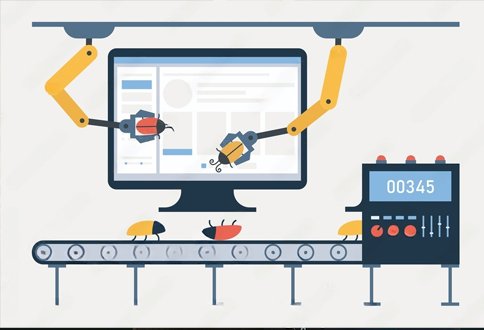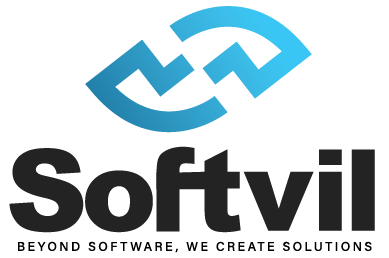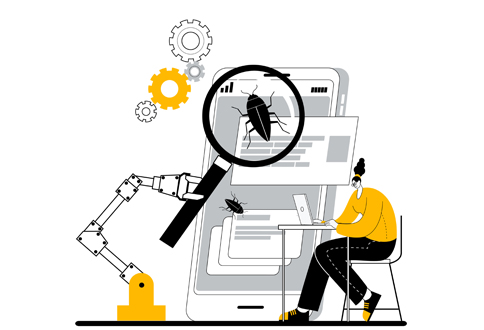Software testing plays a critical role in ensuring the quality, reliability, and functionality of software applications. However, traditional test automation approaches often face challenges such as limited coverage, high maintenance costs, and the inability to keep pace with the rapidly evolving software landscape. This necessitates the exploration of new avenues to enhance and streamline the testing process. Enter artificial intelligence (AI), a transformative technology that holds immense potential for revolutionizing test automation in software development.
AI has emerged as a game-changer, offering innovative solutions to address the shortcomings of traditional test automation. By leveraging advanced algorithms and techniques, AI can analyze vast amounts of data, identify patterns, and make intelligent decisions. From generating test cases and executing tests to predicting defects and analyzing results, AI-based test automation applications offer numerous benefits. They promise improved efficiency, enhanced accuracy, accelerated time-to-market, and better overall software quality.
In this article, we delve into the world of AI-based test automation. We explore its various applications, highlighting how AI can transform the testing landscape and overcome the limitations of traditional approaches. By harnessing the power of AI, software development teams can pave the way for more effective and efficient testing processes, ultimately leading to higher-quality software releases.
Overview of AI-Based Test Automation
AI-based test automation applications have emerged as a game-changer in the field of software testing. These applications leverage the power of artificial intelligence to enhance and streamline the testing process, addressing the limitations of traditional approaches. By employing AI algorithms and techniques, organizations can achieve more efficient, accurate, and comprehensive testing.
Test Case Generation
AI algorithms play a crucial role in automating the test case generation process. By analyzing requirements, code, and system behavior, AI can identify potential test scenarios and generate relevant test cases automatically. AI can also prioritize test cases based on risk and coverage analysis, ensuring that critical areas of the software are thoroughly tested. This automated approach to test case generation not only saves time and effort but also improves test coverage and reduces the chances of missing critical defects.
Test Execution and Orchestration
AI-based test automation excels in test execution and orchestration. AI algorithms can execute test cases automatically and monitor the system under test. They can detect anomalies, identify regression issues, and provide real-time feedback. AI can analyze test results, logs, and metrics to generate comprehensive reports, allowing testers and stakeholders to gain valuable insights into the software’s quality and performance. Additionally, AI can orchestrate test environments by managing infrastructure, databases, and dependencies, optimizing resource utilization and ensuring efficient testing across different platforms and configurations.
AI-Based Test Case Generation
AI-based test case generation is a pivotal application that harnesses the power of artificial intelligence to automate the process of generating test cases. By analyzing requirements, code, and system behavior, AI algorithms can automatically generate relevant and comprehensive test cases, revolutionizing the testing process.
Analyzing Requirements, Code, and System Behavior
AI algorithms can intelligently analyze software requirements, codebase, and system behavior to identify potential test scenarios. By understanding the functionality and interactions within the software, AI can generate test cases that cover various paths and edge cases. This analysis may involve techniques such as static code analysis, data flow analysis, and model-based testing to ensure thorough coverage of the software under test.
Benefits of AI-Generated Test Cases
AI-generated test cases offer several benefits over traditional manual or scripted test case generation approaches.
Improved Test Coverage: AI can identify test scenarios that might be missed by manual testing efforts. It considers a wide range of factors and potential combinations to generate test cases that cover critical paths, edge cases, and corner cases. This leads to enhanced test coverage, ensuring that software is thoroughly tested and potential defects are identified.
Reduced Manual Effort: AI-based test case generation significantly reduces the manual effort involved in creating test cases. Testers can offload the tedious and time-consuming task of writing individual test cases to AI algorithms. This allows testers to focus on higher-level test design and validation, resulting in increased productivity and efficiency.
Increased Efficiency: With AI-generated test cases, testing efforts can be scaled up without a proportional increase in manual effort. The automated generation of test cases enables faster test execution, enabling organizations to identify defects early in the development cycle.
Adaptive Testing: AI algorithms can adapt test case generation based on changing requirements or code changes. They can dynamically adjust test cases to account for modifications in the software, ensuring that the testing effort stays aligned with the evolving system.
Test Execution and Orchestration with AI

AI-based test execution and orchestration revolutionize the way test cases are executed, system behavior is monitored, and test environments are managed. With the power of artificial intelligence, organizations can achieve automated and intelligent test execution processes.
Automatic Test Case Execution and System Monitoring
AI enables the automatic execution of test cases, eliminating the need for manual intervention. AI algorithms can execute test scripts, interact with the system under test, and simulate user actions. This automation streamlines the testing process, increases efficiency, and reduces human errors. Furthermore, AI can continuously monitor the system under test during test execution, capturing and analyzing various metrics and data points to assess the system’s behavior and performance.
Anomaly Detection, Regression Issue Identification, and Report Generation
AI brings powerful capabilities in anomaly detection and regression issue identification. By analyzing test results, logs, and metrics, AI algorithms can identify deviations from expected behavior, detect anomalies, and pinpoint regression issues. These capabilities enable faster identification of defects and potential areas of concern, allowing organizations to address them promptly. AI can also generate comprehensive reports, summarizing the test results, highlighting critical issues, and providing valuable insights to testers and stakeholders. This enables informed decision-making, accelerates the debugging process, and facilitates effective collaboration among the development and testing teams.
Orchestration of Test Environments and Effective Test Data Management
AI can orchestrate test environments by managing infrastructure, databases, and dependencies. It automates the provisioning and configuration of test environments, ensuring consistency and reducing manual effort. AI algorithms can optimize resource utilization, allocate test environments based on demand, and facilitate parallel test execution, enhancing the overall efficiency of testing processes. Additionally, AI aids in effective test data management by generating and maintaining relevant and diverse test data sets. It can identify and anonymize sensitive data, ensuring data privacy and compliance with regulations.
AI for Defect Prediction and Analysis

AI-based defect prediction and analysis utilize advanced algorithms to analyze historical defect data and predict areas of high risk in software development projects. By leveraging AI, organizations can prioritize testing efforts, focus on critical areas, and improve software quality while reducing post-release issues.
Analysis of Historical Defect Data
AI algorithms analyze historical defect data, including bug reports, test logs, and code repositories, to identify patterns and correlations. By analyzing the characteristics of previously identified defects, AI can predict potential areas of high risk in the software. This analysis considers factors such as the complexity of code modules, the frequency of past defects, and the relationship between code changes and reported issues.
Benefits of AI in Prioritizing Testing Efforts
AI plays a crucial role in prioritizing testing efforts by identifying critical areas that are more prone to defects. By analyzing the predicted high-risk areas, AI can guide testers in allocating their resources effectively. This enables focused testing on the most critical components of the software, ensuring that potential defects are identified and addressed early in the development cycle. Prioritizing testing efforts based on AI-driven defect prediction helps optimize testing efforts and maximizes the chances of detecting and resolving critical issues before the software release.
Improving Software Quality and Reducing Post-Release Issues
The application of AI in defect prediction and analysis ultimately leads to improved software quality and a reduction in post-release issues. By proactively identifying areas of high risk, organizations can take preventive measures such as enhanced testing, code reviews, and architectural improvements. This proactive approach reduces the likelihood of defects reaching the production environment, resulting in higher customer satisfaction and a more reliable software product. Additionally, AI can aid in ongoing monitoring and analysis of post-release issues, enabling organizations to quickly identify and address emerging defects, thereby minimizing the impact on users.
Future Prospects
The future prospects of AI-based test automation are highly promising. As AI technologies continue to advance, we can expect further innovations and improvements in the field of software testing. Some potential future developments include:
Enhanced Intelligent Test Case Generation: AI algorithms will become more sophisticated in generating test cases that cover complex scenarios, edge cases, and various combinations of inputs. This will result in even higher test coverage and improved software quality.
Smarter Test Execution and Monitoring: AI will further enhance its ability to monitor system behavior during test execution. It will detect anomalies, predict potential failures, and provide real-time feedback, enabling proactive bug prevention and faster debugging.
AI-driven Test Maintenance: AI can assist in maintaining and updating test suites by automatically adapting test cases to evolving requirements and code changes. This will reduce the manual effort and cost associated with maintaining test assets.
Conclusion
AI-based test automation has already made significant strides in revolutionizing software testing, and its future prospects are bright. By leveraging AI algorithms and techniques, organizations can achieve higher efficiency, accuracy, and effectiveness in their testing processes. The benefits of AI in test automation are extensive, including improved test coverage, reduced manual effort, accelerated time-to-market, and enhanced software quality.
To stay competitive in the rapidly evolving software landscape, it is crucial for organizations to embrace AI in their testing strategies. By integrating AI-based test automation applications, software development teams can streamline their testing processes, identify defects early, and deliver high-quality software products to market faster. Embracing AI in test automation is not just a trend; it is a necessity for organizations seeking to gain a competitive edge and meet the ever-increasing demands for faster, more reliable software.

